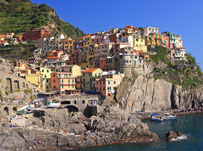Exam revision courses at Easter: the best way to prepare
For some students, the upcoming Easter holiday is the last break before their GCSE and A-Level examinations. Those wanting to consolidate their language skills and gain real confidence in the language might want to consider an exam revision course abroad.
GCSE and A-Level revision courses are available both in France and Spain, and offer a unique opportunity to study the language and prepare for the exam whilst mixing with others of the same age and enjoying the local culture too. There’s nothing like being surrounded by the language to tune your ear and practise speaking it when out and about; even simple activities like ordering a drink, going to the cinema or taking part in social events organised by the school provide a valuable chance to practise the language outside class, in a fun environment, with others of the same age.
Whether you need a little boost before the final hurdle or simply want to make sure you’re on top form when exam time comes, these exam revision courses will make sure you’re as ready as can be and, in many cases, ensure better results!
REVISION COURSES IN FRANCE
Course: French GCSE revision course in Chambery
Start dates: 11th & 18th April 2011
Includes: 16 lessons of general French + 6 lessons of specific GCSE preparation
Course: French A Level revision course in Chambery
Start dates: 11th & 18th April 2011
Includes: 16 lessons of general French + 6 lessons of specific A-Level preparation
Course: French A Level revision course in Bordeaux
Start date: 28th March 2011
Includes: 24 French lessons + 3 cultural activities
Course: French A-Level revision course in Montpellier
Start date: 11th April 2011
Includes: 26 French lessons per week
REVISION COURSES IN SPAIN
Course: Spanish A-Level revision course in Madrid (Premium School))
Start date: any Monday
Includes: 30 Spanish lessons
Course: Spanish A-Level revision course in Madrid (Premium School)
Start date: any Monday
Includes: 25 Spanish lessons
Course: Spanish A-Level revision course in Madrid (Premium School)
Start date: any Monday
Includes: 20 Spanish lessons
Course: Spanish A-Level revision course in Madrid (Premium School)
Start date: any Monday
Includes: 15 Spanish lessons
All that remains to say is good luck – or bonne chance / ¡buena suerte! – in your exams this summer.
Cactus offers language courses in over 30 languages, in 60 countries and 500 destinations worldwide, including specialist courses such as exam preparation, academic year, language & activity and volunteering programmes.


